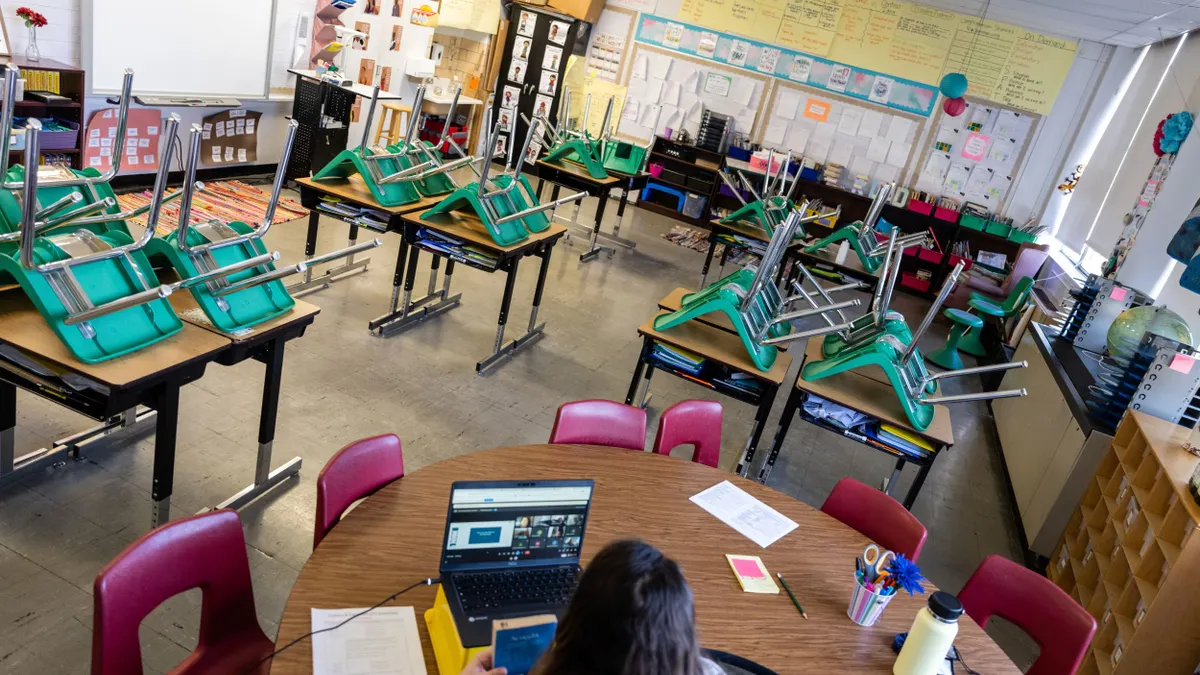More than a third of high school students reported experiencing poor mental health during the COVID-19 pandemic, with 44% saying they persistently felt sad or hopeless in the past year, according to the first nationally representative survey of high school students during the pandemic, conducted by the Centers for Disease Control and Prevention.
Marginalized students reported even greater levels of mental health trauma. Students who were lesbian, gay or bisexual reported greater levels of poor mental health, emotional abuse by a parent or guardian, and suicide attempts. Of LGBTQ students, 76% reported feeling those emotions compared to 37% of heterosexual students.
Female students were also disproportionately impacted: 57% said they persistently felt sad and hopeless compared to 31% of male students.
Among minorities, Asians were most likely to report experiencing racism, at 64%, followed by Black students and students of multiple races at 55% each.
Overall, 55% of students reported emotional abuse by a parent or other adult, including being sweared at, insulted or put down. And 11% experienced physical abuse like hitting, beating, kicking or physically hurting in some other way.
Almost a third (29%) said a parent or other adult in their household had lost a job during the pandemic, according to findings from the CDC survey conducted January-June 2021.
"All children have been affected by the pandemic, but not all equally," said Jonathan Mermin, director of CDC’s National Center for HIV, Viral Hepatitis, STD, and TB Prevention, in a press briefing Thursday.
Social isolation played a key role for children during the pandemic, added Kathleen Ethier, director of CDC's Division of Adolescent and School Health.
"So prior to the pandemic, whatever degree they felt isolated from each other or from social support, that also was exacerbated during the pandemic," Ethier said.
The data confirms "what so many families have seen happening before their eyes," added Mitch Prinstein, chief science officer for the American Psychological Association, in an email. "Kids were suffering at high levels before the COVID-19 pandemic, and now the stress from the pandemic has led to increases in substance use, mental health symptoms, and even rates of suicide."
CDC's new survey data cannot be compared to prior trends, as there is no analogous earlier report from the agency. However, data from other organizations even prior to the pandemic confirm worse mental health outcomes for LGBTQ and female students than for their peers.
Jill Cook, executive director of the American School Counselor Association, said the data "demonstrates the magnitude of the pandemic’s effect on our nation’s students," adding academic success is closely linked to mental health.
"What’s encouraging in this data is that the school connectedness that comes from positive relationships with adults and peers at school is a mitigating factor," Cook said.
According to the data, school connectedness significantly improved student mental health, with 35% of youth who felt connected to adults and peers at school saying they felt persistently sad or hopeless compared to 53% who said they did not feel connected. Additionally, those who felt connected were half as likely to attempt suicide.
Despite this, fewer than half of youth said they felt close to people at school during COVID-19.
"So the work of school counselors is more important than ever, particularly when it comes to ensuring our kids feel supported and that they belong," Cook said.
The findings come on the heels of President Joe Biden pushing for school-based mental health services in his fiscal 2023 budget request, as well as the enactment of a fiscal 2022 budget with investments in school mental health programs and specialized instructional support services, including by school nurses.
The proposed federal budget for 2023 would add $1 billion for a new School-Based Health Professionals program for additional counselors, nurses, school psychologists, social workers and other health professionals in schools.
However, the data also comes amid opposition to social-emotional learning from a small subset of parents and community members who claim it is a way to teach critical race theory or control student health.
Meanwhile, CDC directors warn that the findings from the new survey point to long-term effects that should be used to inform mental health programs.
"The impact of COVID-19 will be felt for many years with devastating consequences," said Mermin. "Mental health as a youth is correlated with mental health as an adult."






 Dive Awards
Dive Awards














